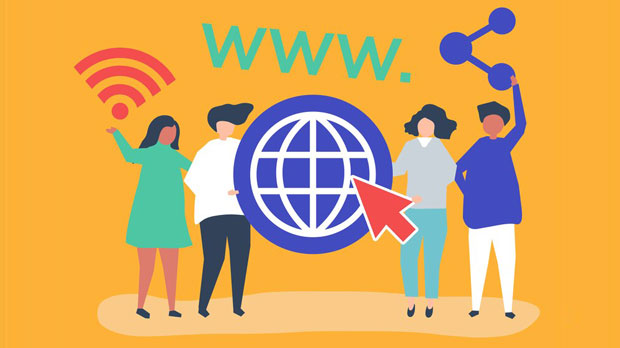When using free proxy servers, one of the key factors that can significantly impact the user experience is the speed at which dynamic IP addresses are switched. In general, free proxies may exhibit a slower IP switching speed compared to paid services due to limited resources and server performance. The dynamic IP switching speed refers to how quickly a new IP address is assigned to the user after each request or when switching between different servers. Understanding the speed and the factors that influence it is essential for users who need anonymity, security, or better browsing performance. This article will delve into the key aspects that determine how quickly IP addresses are switched when using free proxy servers, including technical limitations, network architecture, and how these factors affect real-world use. 1. The Basics of Dynamic IP SwitchingDynamic IP switching is a crucial feature for users who rely on proxy servers for anonymity, bypassing geo-restrictions, or accessing content that is regionally blocked. A dynamic IP address means that the address changes regularly, ensuring that users cannot be easily tracked by their online activities. This is in contrast to static IP addresses, which remain constant until manually changed.For free proxy servers, the process of dynamically switching IP addresses works as follows: a user connects to a proxy server, which assigns an IP address. Once the connection ends, the proxy server will assign a new IP address from its pool of available IPs. However, the switching speed can vary depending on a variety of factors.2. Factors Influencing the Speed of Dynamic IP SwitchingSeveral factors influence the speed at which a free proxy server can switch dynamic IP addresses. These factors include the server's hardware, network load, geographical location, and the infrastructure supporting the proxy service.2.1 Server Performance and HardwareThe performance of the server hosting the proxy is one of the primary factors affecting IP switch speed. Free proxy servers often use underpowered hardware, which can lead to slower response times when switching IPs. These servers may also experience delays due to heavy usage, as they are often shared among many users. As a result, the switching process may take longer compared to more powerful servers used by premium services.2.2 Network Traffic and LoadNetwork congestion is another significant factor that impacts the speed of dynamic IP switching. Free proxies typically have limited bandwidth, which can become overwhelmed when many users are connected simultaneously. This congestion leads to slower data transfer speeds and can result in a delay when switching IPs. High network load means that users may experience longer wait times when trying to switch to a different IP address.2.3 Geographical LocationThe geographical location of the proxy server also plays a role in the speed of IP switching. Free proxy services may not offer a wide range of locations, and the servers they provide may be located far from the user’s region. This can result in higher latency and slower IP switching speeds. A server located on the other side of the world will take longer to respond than one situated closer to the user’s location.2.4 Proxy Server ArchitectureThe architecture of the proxy server and the manner in which it handles IP allocation can also influence switching speeds. Some proxy servers use a simple round-robin approach to assign IP addresses, which can be fast but may not always ensure a fresh, undetected IP address. On the other hand, more complex proxy architectures may involve additional processing steps, leading to longer delays when switching IPs.3. Typical Speed Range for Free Proxy ServersThe speed at which IP addresses switch on free proxy servers can vary greatly, but there are typical ranges that users can expect. Generally, free proxies may take anywhere from a few seconds to several minutes to switch to a new IP address. This delay can be attributed to the factors discussed earlier, including server performance, network congestion, and geographical location.In most cases, free proxies may require around 10-20 seconds to switch IPs, but during peak usage hours, this time can increase significantly. For users requiring a high rate of IP switching for activities such as web scraping, avoiding CAPTCHA, or maintaining privacy, this delay may prove to be a significant limitation.4. Real-World Impact of Slow IP SwitchingWhile free proxy servers may provide an option for users seeking anonymity or region-unrestricted browsing, the slower speed of dynamic IP switching can have practical consequences. For instance, slow switching can result in the following issues:4.1 Decreased Browsing ExperienceWhen using free proxies, the inability to quickly switch IPs can lead to a suboptimal browsing experience. This can manifest as slower load times for web pages, delays in accessing region-locked content, and occasional IP bans from websites that detect suspicious activity due to repeated requests from the same IP address.4.2 Impact on Web ScrapingWeb scraping is a process that relies on the ability to rotate IP addresses quickly to avoid detection by websites. Free proxies, with their slower IP switching speeds, can lead to scraping failures or the detection of automated bot activity, making it challenging to collect data without interruptions.4.3 Increased Risk of DetectionSince free proxies are often used by many individuals, the IP addresses assigned are more likely to be flagged by websites and services that monitor for suspicious activity. Slow switching speeds mean that users may remain on an IP address for longer, increasing the chances of detection and blocking by websites.5. Can Free Proxy Servers Be Used Effectively for IP Switching?Despite the challenges posed by slower IP switching speeds, free proxy servers can still be useful for certain tasks, particularly when users do not require frequent or immediate IP address changes. If you are simply browsing the internet anonymously or accessing geo-restricted content occasionally, a free proxy may suffice.However, for users needing high-speed IP rotation or more robust privacy protection, free proxy servers are likely to fall short of expectations. For intensive tasks like web scraping, managing multiple accounts on websites, or maintaining continuous anonymity, the limitations of free proxies become evident.Conclusion: Weighing the Benefits and Limitations of Free Proxy ServersIn conclusion, while free proxy servers provide an easy and low-cost option for users seeking dynamic IP switching, the speed at which IPs are switched can be slower compared to paid services. This delay is influenced by several factors, including server performance, network load, geographical location, and server architecture. Users should carefully consider their needs and expectations when using free proxy servers, as the slower IP switching speeds can affect their browsing experience, web scraping efforts, and overall online security. For those requiring faster IP switching, paid services with better resources and infrastructure may be a more suitable option.
Apr 16, 2025
![arrow]()



























































